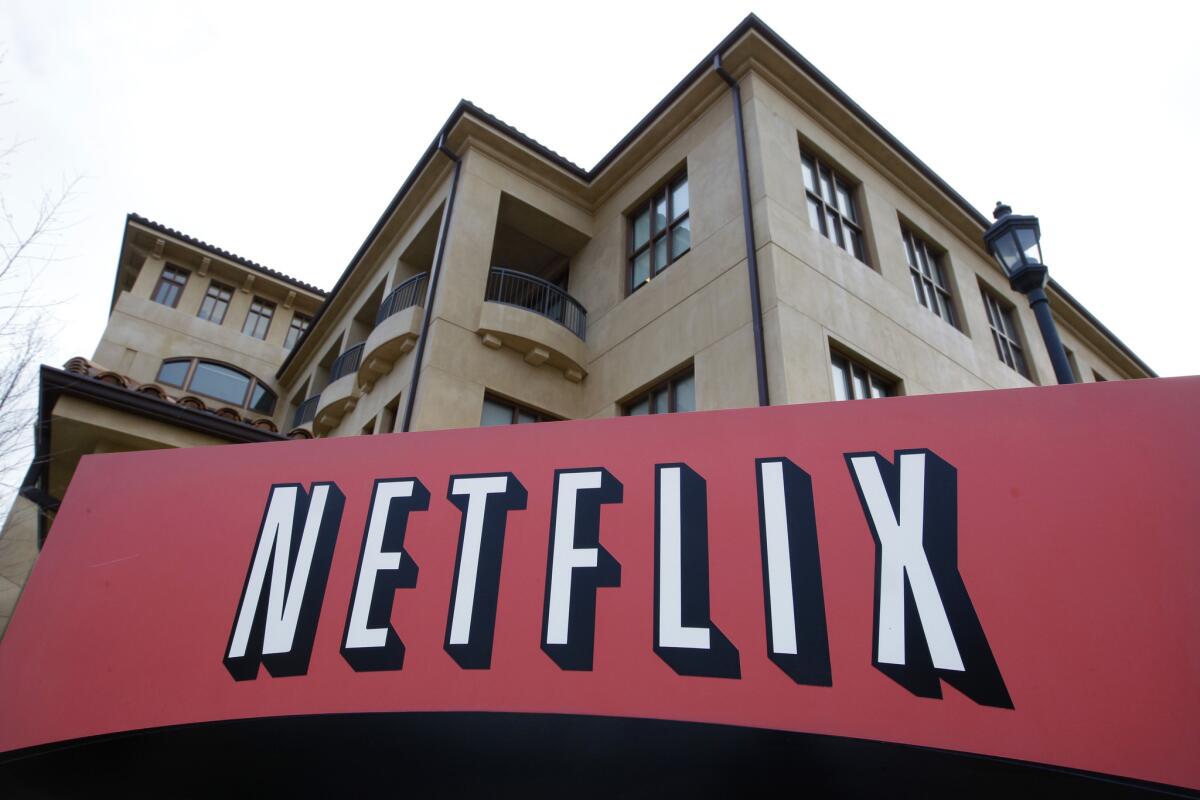An âunlimitedâ parental leave policy sounds great, but will it work?

Netfilx recently announced that it was introducing an expanded maternity and paternity leave policy, creating what may well be the longest parental leave available to new moms and dads at a large U.S. company.
In the race to load up tech industry employees with generous perks, Netflix just made a quantum leap ahead of most everyone else.
The company recently announced in a blog post that it was introducing an expanded maternity and paternity leave policy, creating what may well be the longest parental leave available to new moms and dads at a large U.S. company.
Netflix Chief Talent Officer Tawni Cranz wrote in the post that employees â whether men or women â could step out as long as they wanted during the first year after their childâs birth or adoption. They can also return part time or full time, and will keep getting paid as usual, doing away with the hurdle of moving onto and off disability pay.
âEach employee gets to figure out whatâs best for them and their family, and then works with their managers for coverage during their absences,â Cranz wrote.
One could almost hear the collective gasp from working parents everywhere.
It was called trail-blazing, even game-changing. Companies including Johnson & Johnson, Accenture and Blackstone Group recently stretched their paid leaves to four to five months, keeping pace with the likes of Facebook and Google. Yet Netflix just trumped them all.
As a result, some companies may decide theyâll need to mimic Netflixâs parental policy to keep up â just as many have mirrored the companyâs perk of unlimited vacation.
Being able to take as much paid time off as you want, provided you get your work done, has become a popular Silicon Valley benefit â and roughly 2% of all U.S. companies now offer it, according to the Society for Human Resource Management.
But companies should think twice before playing copycat when it comes to parental leave. An unlimited policy sounds great in theory. Unless the culture really supports it, however, employees wonât know how to react and may even end up taking off less time than they otherwise would.
âMost people need some parameters around leave to have that âpermissionâ to take what they need,â said Carol Sladek, who leads work-life consulting at Aon Hewitt. âWithout those parameters, itâs a lot more difficult for employees, managers and the corporate culture to be accepting.â
Part of the challenge, Sladek added, is that âweâve been wired in the U.S. to think about time off as an entitlement that you accrue.â
Netflix, she says, could be an exception given the culture it has already created. The company subscribes to a âfreedom and responsibilityâ approach, outlined in a slide deck thatâs long been widely circulated online, which basically says a company should treat workers like responsible adults.
Netflix had a traditional vacation policy until 2004, when an employee pointed out that Netflix didnât track hours worked per day or per week â so why did it track vacation days per year?
That sparked the idea at Netflix that the company didnât actually need to have a policy. As detailed in one of the slides: âThere is also no clothing policy, but no one comes to work naked.â
The slide deck also pointed out that Netflix leaders set examples by âtaking big vacations,â as a way of making it clear that the lack of policy shouldnât discourage employees from taking time off.
âThey already have the cultural background,â Sladek said. As a result, itâs more likely Netflix can âmake this work for them because itâs a logical extension of their cultural philosophy.â
Asked whether the company would be doing anything in particular to push the message that unlimited parental leave really means what it says, a Netflix spokesman wrote in an emailed statement that âwe ask our employees to make the best decisions for Netflix every day. This frees them to do the same for their expanding families with the companyâs full support.â
In places where such freedom isnât ingrained, an âunlimitedâ policy can have unintended side effects. Take the example of the British photography app company Triggertrap, whose founder has written about his companyâs experience with the unlimited time off idea last year.
His problem didnât turn out to be that people were taking too much time off under his âtake as much holiday as you wantâ approach.
Itâs that they werenât taking enough: In Britain, employees are entitled, by statute, to 28 days off, but his average employee was taking just 15. âBecause we werenât explicitly tracking, people felt guilty about taking time off,â he wrote.
The same thing has the potential to happen with parental leave â if not at Netflix, then elsewhere â especially when you add in the gender dynamics that make it a traditionally thornier subject than regular time off.
If the policy says âunlimitedâ but no one actually sees a company leader take six, nine or even 12 months off, theyâre more likely to default to whatâs considered normal at other companies. And that could be particularly true if thereâs no manager of their own gender who is setting an example.
There are also the inevitable logistical issues of covering for employees who are gone that long. âItâs very difficult to take nine months off,â Sladek said. âSome of the barriers may be that managers just wonât be able to handle it.â
Jena McGregor writes a daily column analyzing leadership in the news for the Washington Postâs On Leadership section.
More to Read
Inside the business of entertainment
The Wide Shot brings you news, analysis and insights on everything from streaming wars to production â and what it all means for the future.
You may occasionally receive promotional content from the Los Angeles Times.










